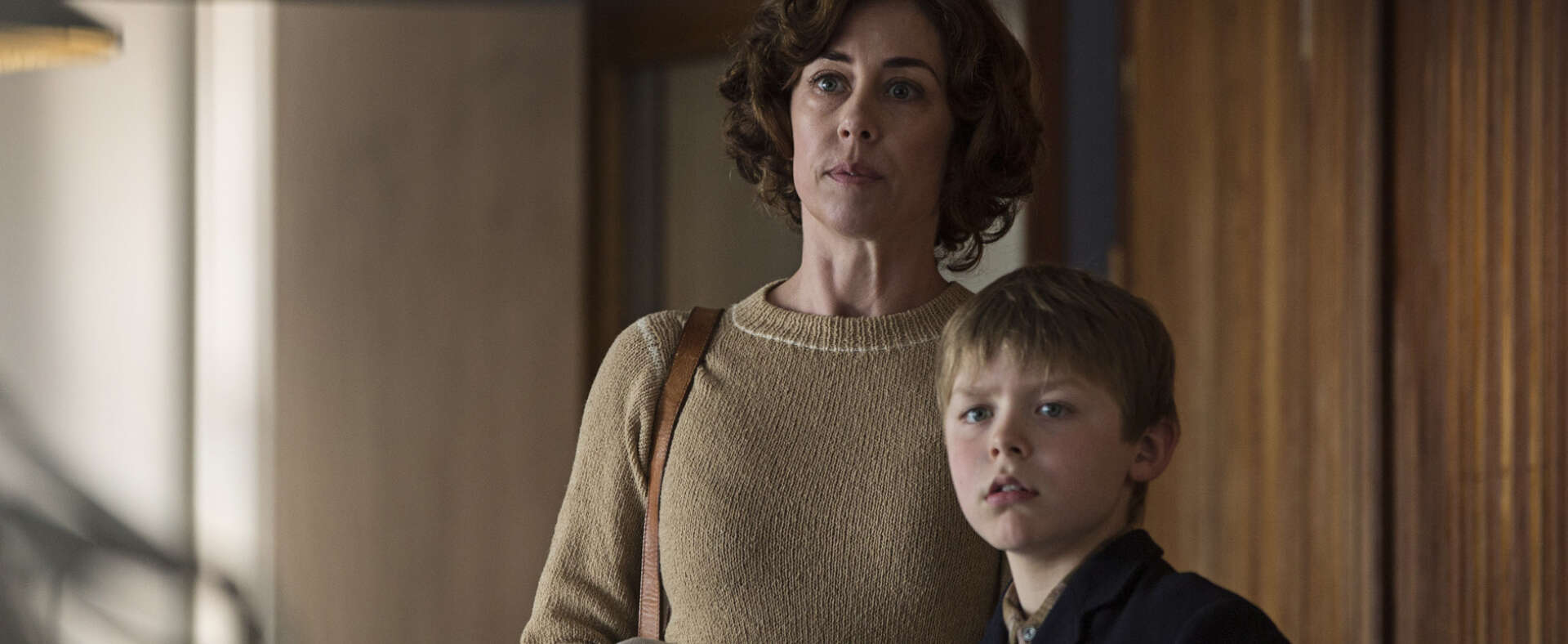
Nordicfilmandtvnews catches up with the Danish star.
When you introduced your latest film The Day Will Come to the audience at the opening of New Nordic Films you mentioned how extraordinary it was to work with the boys and two main actors in the film Rudbeck Lindhardt and Harald Kaiser Hermann. Can you explain why?
Sofie Gråbøl: I had never seen children actors go so deeply into their roles. It’s also because this story, apart from being a really strong script [about two brothers striving to survive in an orphanage in 1960s Denmark] is based on a true story.
Before we started filming, we spent the days with two of the men who lived in that orphanage. Time doesn’t exist in the sense that you could see how painful it was for these men in their 60s to remember. The wounds were still so open. They had to stop and cry every five minutes. That was moving to see, but the concentration in the room, especially from those young kids actors who live privilege lives was amazing. They are used to consuming so many stories from social media, Youtube. Still, they were able to share a story with real human beings.
It reminded me of the importance of sharing our stories, from human beings to human being, but also through films, literature. We need to be reminded who we have been to understand who we are and who we want to be.
There is a magic of spontaneity and natural talent with kids actors. You yourself didn’t train as an actor but threw yourself into that profession aged 17…
SG: That’s the mystery about that craft You can put a dog in from of a camera and you’re completely intrigued about what he is feeling and doing. It’s all about presence. When you do a scene, it doesn’t matter how old you are. How experienced you are. What matters is for you to be here, in the now, in front of the camera.
However when I was very young, when I did a scene and felt it didn’t ring true, I didn’t know why. I think that’s the only difference. The more experienced you are, the more you know. It’s like in a city, the more places you’ve been to, the more likely you will be able to navigate through it.
How was it to work with Lars Mikkelsen and writer Søren Sveistrup with whom you collaborated on the hit show The Killing?
SG: It was lovely to work with Lars, although we had very few scenes together on The Killing. I have done theatre as well with Søren. Denmark being such a small country, we keep bumping into each other. I was lucky because there was a great cast on The Day Will Come.
The Killing was among the first crime series that kick-started the Nordic noir world invasion and you’ve become a big star in particular in the UK. You then filmed the English language Fortitude partly shot in Iceland. How do you feel about the global appetite for Nordic noir that doesn’t fade?
SG: It makes me extremely proud. Obviously it’s a question of timing. With The Killing, nobody expected it to do so well on the BBC. At the beginning it was programmed on BBC Four very late….
I think Dogma played a part in putting Danish drama on the map, then The Girl with the Dragon Tattoo. Of course there is a portion of luck, coincidence, but what puzzles me is the fact that Nordic noir is not ‘60 seconds of fame’. The interest hasn’t faded. Then it’s not just about luck. It’s evident that Nordic countries have a very high level of storytelling, going back to a long tradition, from Ibsen, Strindberg etc. We take it for granted and don’t really notice it until we see ourselves through other people’s eyes.
I’ve thought about this and I think that what we excel in is in well-crafted ‘little stories’, tightly knitted and written about relationships. We know something about that and that’s what the international market enjoys.
What’s next for you?
SG: I’m going to do some theatre in Copenhagen and I hope to go back to work in the UK.
Are there any directors that you’d like to work with?
SG: I have the ability to fall in love with whatever is offered. It can be the characters, the people I work with. My job is never boring; you’re always challenged, on shaky ground. That’s what I enjoyed about working in the UK.
Denmark is such a small country and anytime you work on a project you will be sure to meet someone you’ve worked with before. But when you work abroad, without any familiar face, it’s really exciting. I loved the exhilarating feeling of freedom, because there is no one reminding you who you are, what you normally do and say-you can do whatever! I did theatre in the UK. That was a huge challenge, but I absolutely loved it.
Would you be tempted to direct to have more control?
SG: It’s funny because a lot of people ask me that. I have a huge respect for directors, but I feel that I don’t have the knowledge, especially about telling a story visually. That would be a challenge as I would be a complete amateur, which is always a good place to start in my experience.